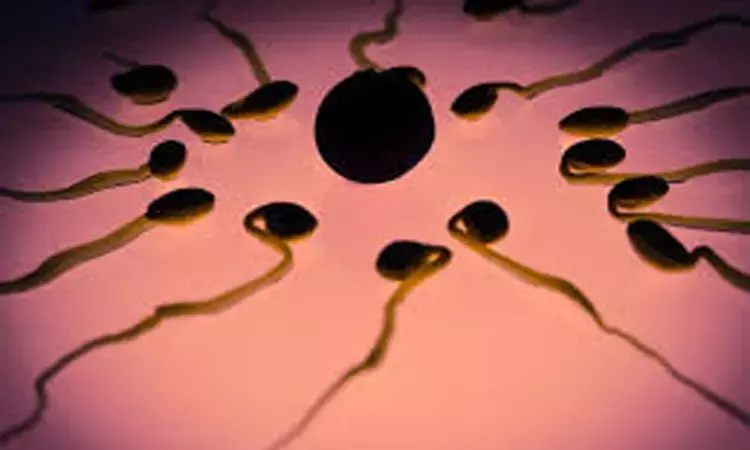- Home
- Medical news & Guidelines
- Anesthesiology
- Cardiology and CTVS
- Critical Care
- Dentistry
- Dermatology
- Diabetes and Endocrinology
- ENT
- Gastroenterology
- Medicine
- Nephrology
- Neurology
- Obstretics-Gynaecology
- Oncology
- Ophthalmology
- Orthopaedics
- Pediatrics-Neonatology
- Psychiatry
- Pulmonology
- Radiology
- Surgery
- Urology
- Laboratory Medicine
- Diet
- Nursing
- Paramedical
- Physiotherapy
- Health news
- Fact Check
- Bone Health Fact Check
- Brain Health Fact Check
- Cancer Related Fact Check
- Child Care Fact Check
- Dental and oral health fact check
- Diabetes and metabolic health fact check
- Diet and Nutrition Fact Check
- Eye and ENT Care Fact Check
- Fitness fact check
- Gut health fact check
- Heart health fact check
- Kidney health fact check
- Medical education fact check
- Men's health fact check
- Respiratory fact check
- Skin and hair care fact check
- Vaccine and Immunization fact check
- Women's health fact check
- AYUSH
- State News
- Andaman and Nicobar Islands
- Andhra Pradesh
- Arunachal Pradesh
- Assam
- Bihar
- Chandigarh
- Chattisgarh
- Dadra and Nagar Haveli
- Daman and Diu
- Delhi
- Goa
- Gujarat
- Haryana
- Himachal Pradesh
- Jammu & Kashmir
- Jharkhand
- Karnataka
- Kerala
- Ladakh
- Lakshadweep
- Madhya Pradesh
- Maharashtra
- Manipur
- Meghalaya
- Mizoram
- Nagaland
- Odisha
- Puducherry
- Punjab
- Rajasthan
- Sikkim
- Tamil Nadu
- Telangana
- Tripura
- Uttar Pradesh
- Uttrakhand
- West Bengal
- Medical Education
- Industry
Sperm cryopreservation effective fertility preservation that benefits cancer patients: Study

The increasing number of cancer survivors is attributed to advances in cancer treatment. However, these treatments can have adverse effects on male fertility, either temporarily or permanently. For adult males undergoing treatment for cancer who are concerned about their future fertility, sperm cryopreservation (storing sperm at a very low temperature) is the most effective method for preserving fertility. This procedure is integral to assisted reproductive technologies (e.g. IVF) and should be initiated before the onset of fertility-compromising oncological procedures. This study by Li et al aimed to evaluate the effectiveness of sperm cryopreservation in preserving fertility and reproductive outcomes in male cancer patients, with a particular emphasis on the effects of various assisted reproductive technology methods on reproductive outcomes when using cryopreserved sperm.
Authors conducted an extensive literature search for relevant studies published through to 31 December 2021, in the following databases: CENTRAL, CNKI, Cochrane Systematic Reviews, EMBASE, MEDLINE, PUBMED, and Web of Science. They included all studies that reported offering or attempting to cryopreserve sperm before or during cancer treatment in male patients considered at risk of treatment-related fertility impairment.
This meta-analysis included 69 non-randomized studies, with 32,234 patients referred for sperm analysis and 23 178 patients cryopreserving at least one sperm sample.
The pooled failed-to-cryopreserve rate was 10% (95% CI, 8–12%), and the sperm disposal and sperm use rates were 23% (95% CI, 16–30%) and 9% (95% CI, 8–10%), respectively.
The pregnancy, miscarriage, and delivery rates were 28% (95% CI, 22–33%), 13% (95% CI, 10–17%), and 20% (95% CI, 15–25%), respectively.
Subgroup analysis showed higher pregnancy and delivery rates, as well as a lower failed-to-cryopreserve rate, in recent studies compared to those released a decade ago.
The studies from Asia reported higher sperm disposal and pregnancy rates than in other continents.
Study analysis showed clinical pregnancy rates per cycle of 34% (27–41%), 24% (14–35%), and 9% (5–15%) and delivery rates per cycle of 23% (17–30%), 18% (11–26%), and 5% (1–9%) for ICSI, IVF, and IUI, respectively.
In conclusion, this study supported previous reports that sperm cryopreservation is an effective method of fertility preservation in male patients with cancer. The rate of use of frozen sperm in the review underestimated the actual rate, making it meaningful to actively recommend fertility preservation to patients with cancer. ART plays an important role in fertility preservation and pregnancy achievement, with ICSI resulting in better clinical outcomes than IVF and IUI in patients with cancer. Hence, fertility preservation still requires the involvement of oncologists, reproductive medicine clinicians, andrologists, and embryologists.
Source: Li et al.; Human Reproduction Open, 2024, 2024(1), hoae006 https://doi.org/10.1093/hropen/hoae006
MBBS, MD Obstetrics and Gynecology
Dr Nirali Kapoor has completed her MBBS from GMC Jamnagar and MD Obstetrics and Gynecology from AIIMS Rishikesh. She underwent training in trauma/emergency medicine non academic residency in AIIMS Delhi for an year after her MBBS. Post her MD, she has joined in a Multispeciality hospital in Amritsar. She is actively involved in cases concerning fetal medicine, infertility and minimal invasive procedures as well as research activities involved around the fields of interest.


